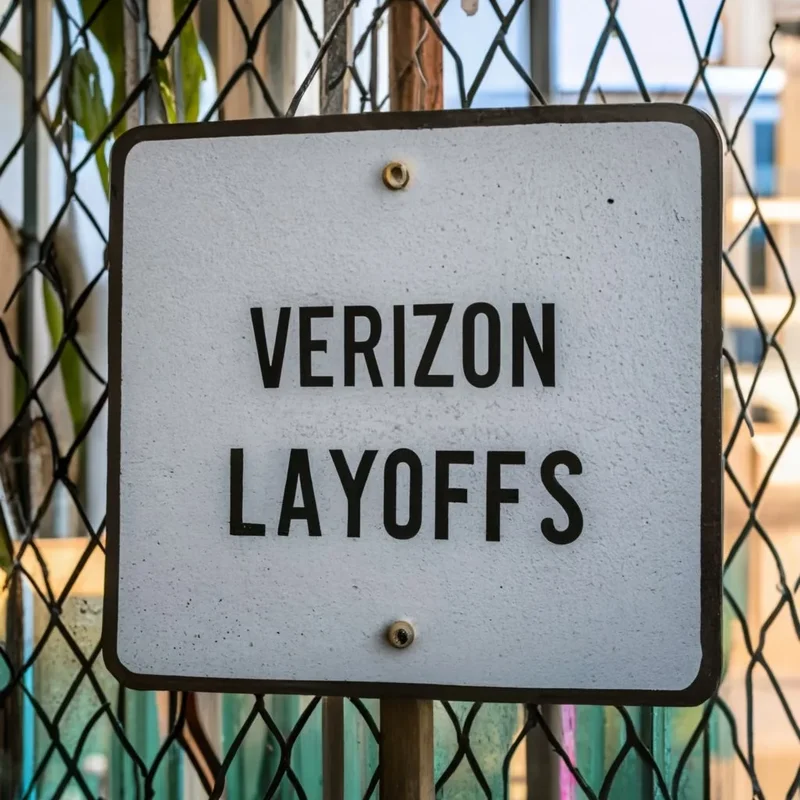Okay, so the headlines are buzzing with "Verizon Layoffs: 13,000 Jobs Cut!" I get it. It sounds scary. No one wants to hear about job losses, especially when it's on this scale. But before we all start hitting the panic button, let's take a deep breath and look at the bigger picture, shall we? Because what if this isn't a sign of impending doom, but a necessary, albeit painful, step toward a more innovative and customer-centric future?
Verizon CEO Dan Schulman said it himself: their current cost structure is limiting their ability to invest in what really matters—their customers. He wants to "reorient the entire company around delivering for and delighting our customers.” This isn’t just corporate jargon, folks. It’s a signal that Verizon recognizes the need to adapt, to streamline, and to double down on what will drive future growth. They’re even establishing a $20 million career transition fund for laid-off employees to help them focus on the “opportunities and necessary skill sets as we enter the age of AI.” That’s not just lip service; that’s an investment in the future!
Think about it. We're in the middle of a technological revolution. AI is no longer a sci-fi fantasy; it's rapidly transforming industries, automating tasks, and demanding new skill sets. Sure, some jobs will be displaced, that's a given. But history tells us that technological advancements ultimately create more opportunities than they destroy. Remember when everyone thought the printing press would destroy scribes? Instead, it democratized knowledge and ushered in an era of unprecedented intellectual growth! This is no different.
The layoffs, while unfortunate, seem to be a strategic move to free up resources for investment in AI and other cutting-edge technologies. Amazon is doing the same thing, cutting bureaucracy to invest in “our biggest bets,” such as artificial intelligence. Companies are recognizing that to stay competitive, they need to embrace these changes, even if it means making tough choices in the short term. Should recent layoffs at major companies worry you? Experts weigh in.
And let's be honest, the telecommunications industry is facing mounting pressure. Competition is fierce, with rivals offering cheaper plans and cable operators entering the market. Verizon needs to be leaner, more agile, and more responsive to customer needs. This restructuring, while painful, could be exactly what they need to stay ahead of the curve.

Now, I know what you’re thinking: "But what about the people who lost their jobs?" And that's a valid concern. Layoffs are never easy, and they have a real impact on people's lives. But I truly believe that these individuals will find new opportunities, perhaps even more fulfilling ones. The skills and experience they gained at Verizon are valuable, and the demand for talent in the tech sector remains strong.
I saw a comment on a Verizon Reddit thread that really resonated with me. A user wrote, "Yeah, it sucks right now, but I'm seeing this as a chance to finally pursue that passion project I've always dreamed about." That's the kind of resilience and optimism that will carry us through this transition.
So, what does this all mean? It means that the world is changing, and we need to be ready to adapt. It means that companies need to make tough choices to stay competitive. And it means that we need to embrace new technologies, like AI, to create a better future for everyone. This isn't about robots stealing our jobs; it's about humans and machines working together to achieve things we never thought possible.
When I first read about the Verizon layoffs, I won't lie, I felt a pang of concern. But then I thought about the incredible potential of AI, the boundless opportunities for innovation, and the resilience of the human spirit. I realized that this isn't an ending, but a beginning. A beginning of a new era of connectivity, efficiency, and customer-centricity. And frankly, that's something to be excited about. What new services and experiences will be enabled, what new skills will be required, what new business models will emerge? These are the questions that should be on our minds.
This is not a sign of collapse, but a caterpillar shedding its skin to become a butterfly.